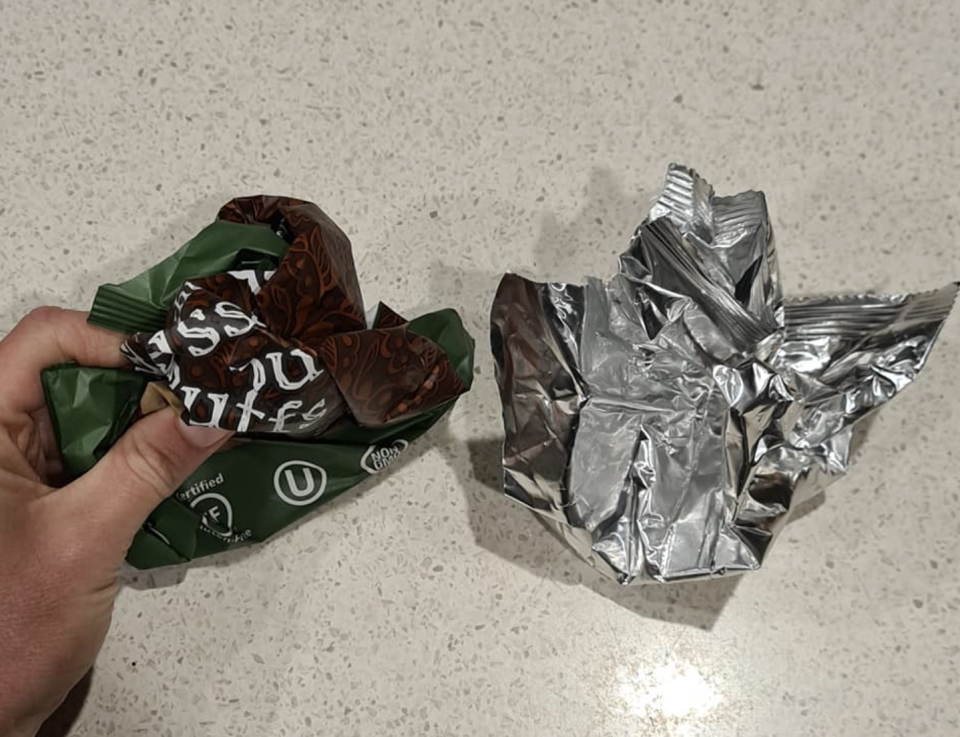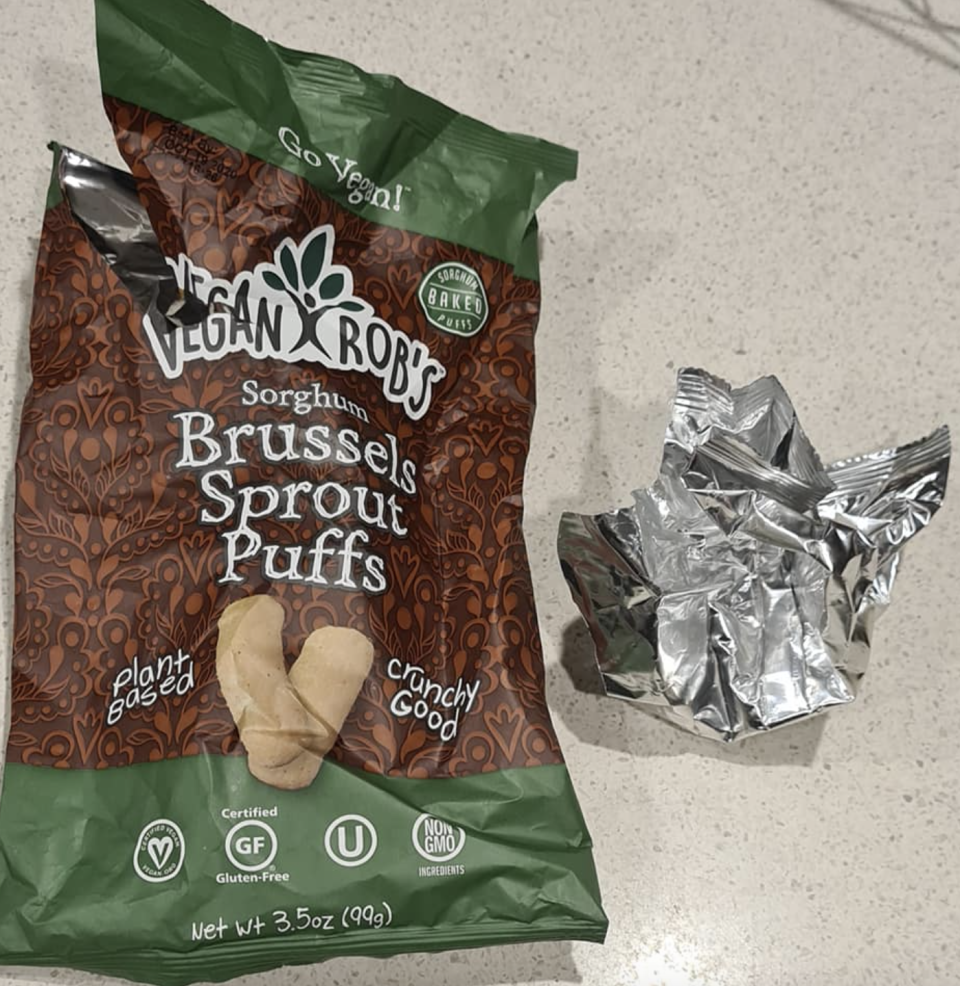Truth behind recycling 'scrunch test' for wrappers
There’s a nifty hack that might help consumers decipher between food wrappers safe to be recycled as soft plastics and those needing to be dumped into regular waste bins.
Picking the difference can sometimes be as simple as performing a “scrunch test”, which involves watching to see how a wrapper reacts to determine if it’s either foil-lined plastic or plastic-lined foil.
If the wrapper bounces back into shape after it’s scrunched, this could indicate that it’s foil-lined plastic and therefore safe to recycle, according to the administration of a popular recycling group on Facebook.
If the wrapper stays scrunched however, this could mean it’s plastic-lined foil and thus needs to be tossed into a standard rubbish bin, the admin claimed.

A similar method can be applied when folding the wrapper - if it stays folded, it probably needs to go in a regular waste bin, and if it bounces back, it might be suitable to recycle.
The woman behind the eye-opening post said that such hacks could be useful until the Australasian Recycling Label (ARL) by Planet Ark becomes more prominent on packaging.
“But for now, who else finds it interesting to learn about different materials used in packaging?” she wrote.
Lego’s plastic-free commitment - are toys next on the agenda?
Revealed: The plastic items in your life you'll be forced to give up next
She suggested members either contact the manufacturer of the product if they weren’t sure if wrappers were recyclable, or go straight to recycling organisation RedCycle.
Is it really an accurate test?
The hacks, while likely helpful in some cases, were a little too simplistic to be able to be applied across all types of packaging, according to a RedCycle employee.
“Unfortunately it’s not as simple as that,” spokesperson Rebecca Gleghorn told Yahoo News Australia.

“It comes down ultimately to the percentage of aluminium in the composition of the material,” she said.
Ms Gleghorn said some items that would pass the “scrunch test” as ‘safe’ for recycling wouldn’t actually be accepted by RedCycle.
“For example, we can accept dry pet food bags, but we cannot accept bags from coffee beans or ground coffee or silver wine/water bladders,” she said.
To be absolutely certain the right materials ends up in the correct bins, consumers can refer to a comprehensive list on the RedCycle website, or contact the organisation if they are still confused.
Do you have a story tip? Email: newsroomau@yahoonews.com.
You can also follow us on Facebook, Instagram and Twitter and download the Yahoo News app from the App Store or Google Play.



